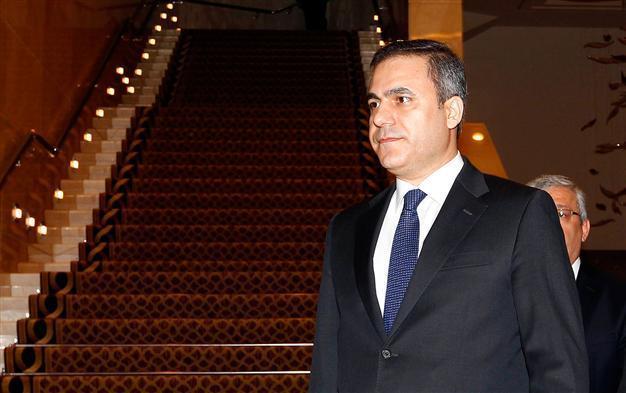Intel gets Foreign Ministry's support in PKK dialogue
MURAT YETKİN

Intel chief Fidan is leading the talks process with the jailed PKK leader. AA photo
The Turkish Foreign Ministry is playing a major role in government initiatives to restart a dialogue with the outlawed Kurdistan Workers’ Party (PKK) via the National Intelligence Organization (MİT) for a peaceful solution to the country’s chronic Kurdish problem, sources close to the government told Hurriyet Daily News.According to one source, who asked not to be named, the Foreign Ministry has become an important actor in supporting the MİT, “almost as important as the police or gendarmerie.”
There are two main channels of support from the Foreign Ministry to the MİT.
The first one is the Intelligence and Security Affairs Directorate of the Foreign Ministry, which mainly compiles open intelligence and employs analysts from its career diplomatic resources. The counter-terrorism desk of the Directorate, headed by Ambassador Tunç Üğdül, has intensively focused on the international connections of the PKK, particularly in recent years.
The second channel was the restructuring of Turkish intelligence by its head, following “undersecretary” Hakan Fidan taking office in May 2010. He employed two career diplomats for two of his deputy posts. Turkey’s former ambassador to Tokyo, Abdurrahman Bilgiç, and former ambassador to Brussels, İsmail Hakkı Musa, are playing their silent role in connection to their former Ministry regarding the interior and exterior organizations of the PKK.
Facts show a few new aspects in the government’s approach to the new dialogue process with the PKK, which has been in an armed campaign for an independent Kurdish state for the last three decades, claiming 40,000 lives so far.
The first one comes from the disappointment of Prime Minister Tayyip Erdoğan regarding the collapse of a first round of talks – which had been carried out by Fidan, too – between 2009 and 2011. The government openly says that it was the PKK attack in Silvan, near the Syrian border in July 2011 right after the general elections, that ended the talks. But the government also believes that the “Oslo talks” might have been compromised by facilitating “foreign” institutions, unveiled so far. This time, Erdoğan is trying a native initiative by sending Fidan directly to the İmralı island prison where the PKK leader Abdullah Öcalan is being held. The fact is that all foreign dimensions of the problem, from the U.S. to Iraq and Iran, are taken care of by the Foreign Ministry.
The second aspect shows that the government is trying to find a political/diplomacy-based solution this time, instead of a security-based one. That keeps police and gendarmerie forces, which are the main tool of the government in its fight against terrorism, perhaps a bit distanced from the information about what is actually going on, but on the other hand ready to act when Erdoğan thinks that talks are not going anywhere.
That being said, one has to note that the general atmosphere in Ankara regarding the government’s initiative to talk to the PKK could be summarized as “glass half full”; from the Kurdish problem-focused Peace and Democracy Party (BDP) to the main opposition Republican People’s Party (CHP), despite an isolated reaction from the Nationalist Movement Party (MHP). And the fact that the Foreign Ministry has been intensively contributing to the new Kurdish initiative besides intelligence, police and gendarmerie, reflects the political atmosphere and expectation to end both terrorism and Kurdish problems in Turkey.











